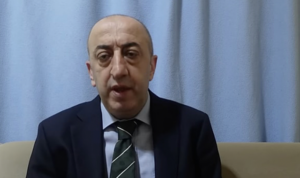The extradition of 54-year-old Ali Yesildag to Turkey was decided by the Supreme Council of State, while the Supreme Court had previously expressed the same position.
The Turkish national had close family and business ties with Rep. Tayyip Erdogan before accusing him of corruption involving hundreds of millions of dollars.
Specifically, in 2023, Yesildag publicly denounced Erdogan for corruption via 8 videos on YouTube. His public denunciations caused political uproar in the neighboring country, with opposition parties calling for clarification.
In mid-November 2023, Greek border guards spotted the 54-year-old businessman in a rural area of Feres, crossing the Greek-Turkish border illegally.
Subsequently, the Greek Embassy in Turkey forwarded to Athens a request from the General Prosecutor’s Office in Prusa for the execution of an arrest warrant and the extradition of Yesildag to the neighbouring country, in order to execute the decision of the Turkish court of 1.6.2022.
With this decision, he has been given a total prison sentence of 1,665 days (45.6 years) and, by way of merger, 19 years and 23 months.
He was convicted under the Turkish Penal Code of intentional homicide, kidnapping in a residence or shop, wounding with a weapon, collaborating with several other persons to purchase, transport or possess poles and bullets without a license and of kidnapping with a weapon at night with other persons.
These offences attributed to him correspond in the Greek Criminal Code with those of manslaughter with intent, robbery, theft, unlawful possession of weapons, etc.
The Council of Appeals of Thrace was in favor of extraditing Ali Yesildag to the neighboring country, whose decision last February was made irrevocable by the Fifth Criminal Division of the Supreme Court.
The 54-year-old then appealed to the Court of Cassation, asking for the decision of the Deputy Minister of Justice to annul the decision by which his extradition to Turkey was upheld.
Before the CoE, among other things, he argued that with his extradition to Turkey there is a possibility that he could face other criminal prosecutions for other offences, such as terrorism, but also be tortured, subjected to cruel inhuman treatment, etc.
This is because he had previously had personal, family and business relations with the President of the Republic of Turkey Recep Tayyip Erdogan, which were broken after his public revelations to the Turkish media about financial scandals in which the President of the Republic of Turkey and other government officials were allegedly involved.
He further argued that the decision of the Deputy Minister of Justice violates the ECHR, the UN Convention against Torture, the International Covenant on Civil and Political Rights, the Charter of Fundamental Rights of the European Union, the Constitution, etc.
The Constitution, the Charter of Fundamental Rights of the European Union, the Constitution and the Constitution.
The Fourth Chamber of the Council of State, chaired by Vice President Spyridoula Chrysikopoulou and rapporteur Ioannis Papagiannis, rejected as unfounded all the claims of the 54-year-old and upheld the decision of the Deputy Minister of Justice to extradite him to Turkey.
Ask me anything
Explore related questions





